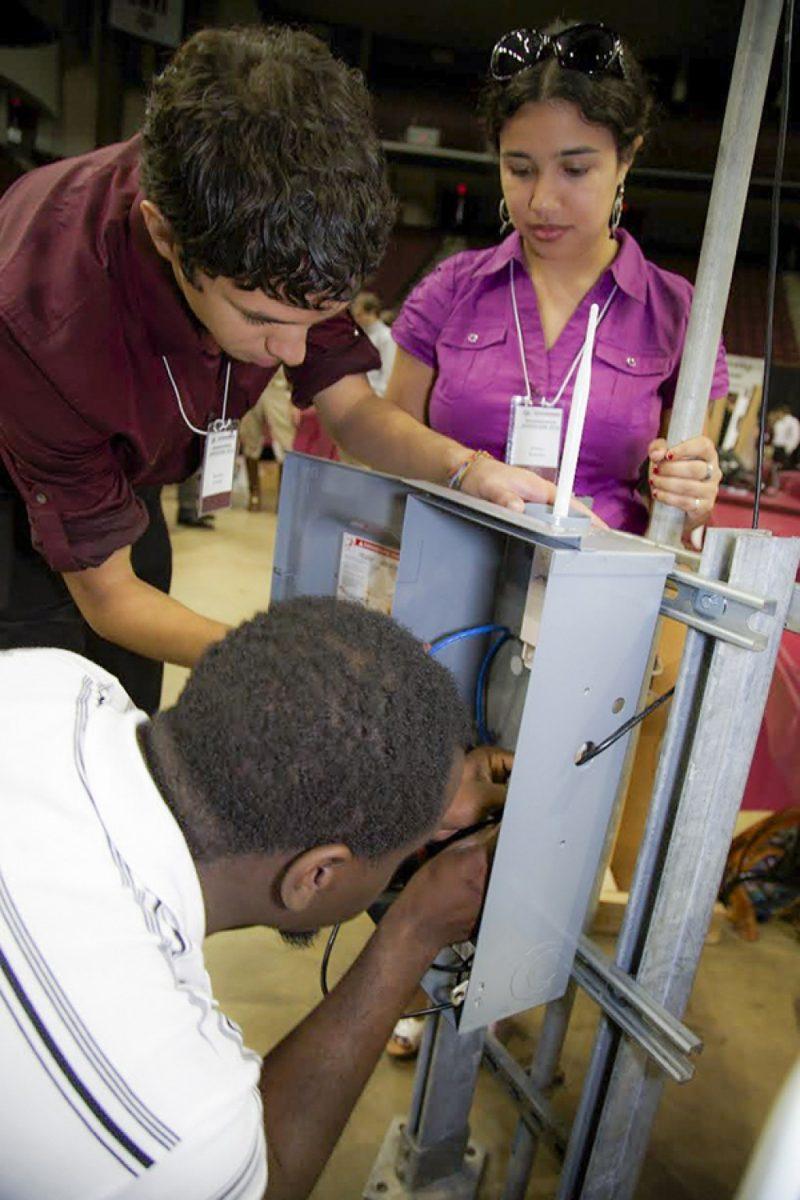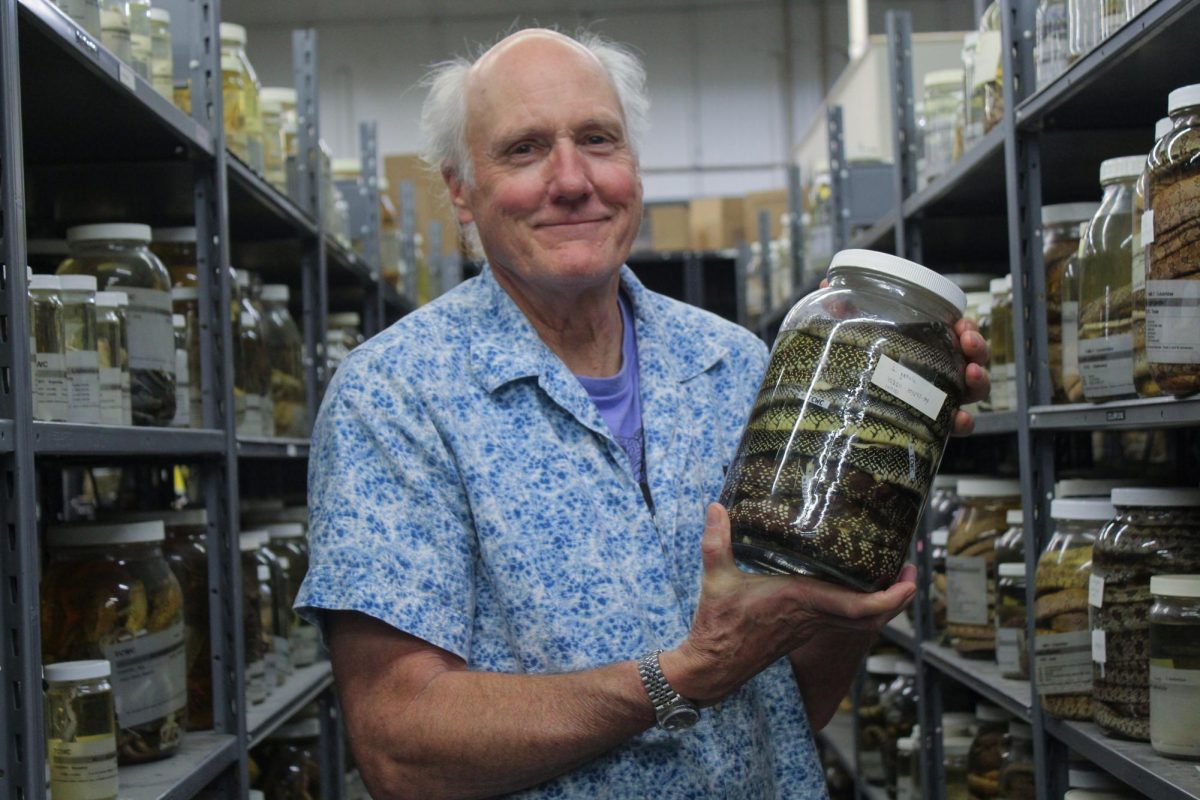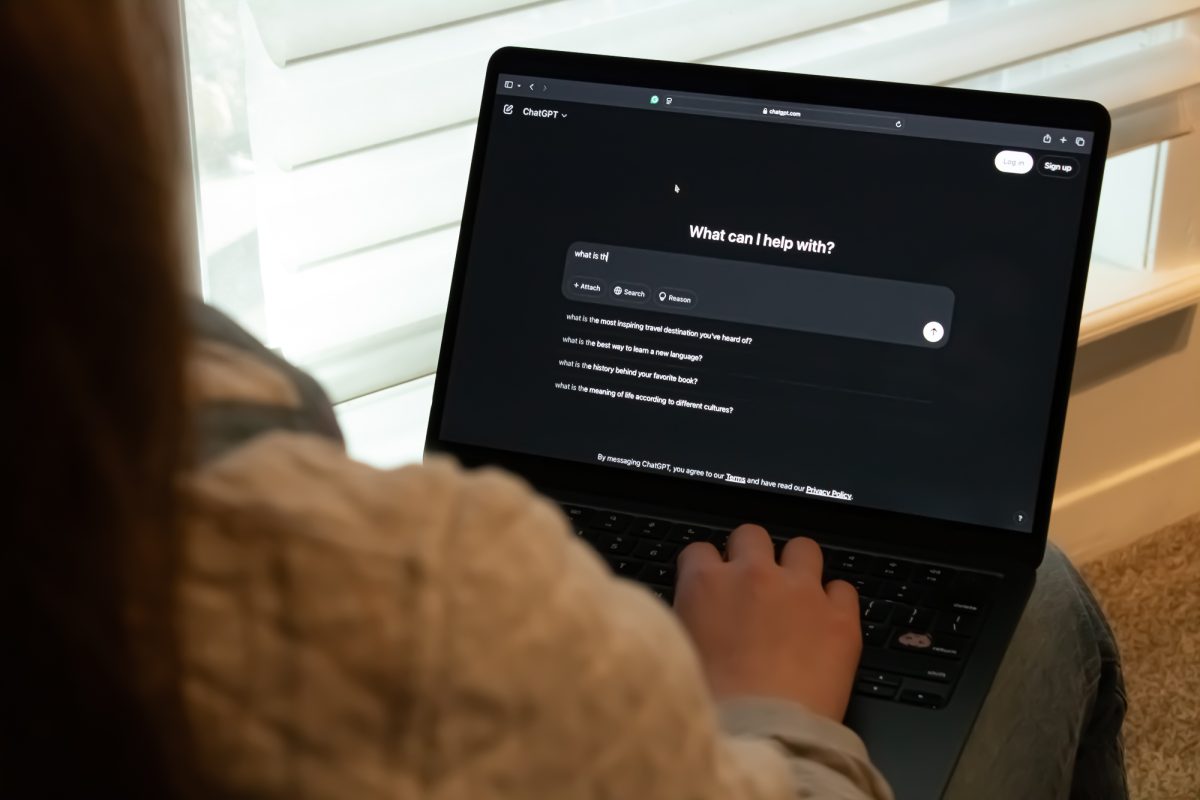One engineering class takes its education well outside the limits of the classroom.
Engineering Projects in Community Service, EPICS, is an interdisciplinary course that gives students the chance to tackle challenges faced by non-profit partners. Current projects include web-based educational resources and freeze-proof water fountains, and many students continue their projects over the course of several semesters.
Magdalini Lagoudas, EPICS professor, said EPICS is about giving students a project and providing them with the resources and assistance to help them complete it.
“When you think about EPICS, it is a project-based course, so students learn the skills they need to complete the project,” Lagoudas said. “I would say there are three characteristics for the class — it is multi-disciplinary, it is project based and it is multi-leveled, vertically integrated. You have students who are freshmen working with students who are seniors.”
Ryan Gates, computer science junior, said his project, which is now in its third semester, is near completion. He aims to help local teachers manage their classes better with a web-based tool that keeps track of class information.
“We’re building a web application for a non-profit organization called Elves and More,” Gates said. “It’s basically this website that teachers can migrate to store all this information they normally keep on paper. We are removing the need to track and process paper.”
Gates said the projects EPICS groups undertake tend to be wide-ranging.
“The sheer spectrum of things that people can do in the class is actually really large, and it’s completely possible that you can bring in your own idea and your own slant on your project,” Gates said.
Lagoudas said while there is some structure within the class, it is all up to the students to choose where they go with the project and what they decide to do.
“The students are the ones who are doing the work, they are the ones deciding, ‘We are going to pursue this idea,’” Lagoudas said. “They are the ones who need to be creative, and they have come up with the core design.”
Jeremy Moorman, computer science junior, said the project forces students to learn new skills and do new things, but it does not push them past their limits.
“Part of the class is being able to define what you are going to do, what you can manage,” Moorman said. “You make up what you want to get done by the end of the semester, so you’re not being forced to do something that’s out of your skill range. You can say, ‘This is what I can do, this is what I can provide you with.’”
Rodney Boehm, a mentor for a number of the EPICS projects, said EPICS is about finding projects that will make a difference to the organization.
“The key characteristic behind all these projects, these are something that a community or non-profit organization has identified to us as being a real need,” Boehm said. “This is not just something that is made up, this is something that each one of these organizations wants to deploy and use. We actually have at the end of these projects, no matter how many semesters it takes us, something deliverable to our sponsor that they will use.”
Moorman said EPICS has helped him learn things that a classroom setting would not normally allow for.
“To me EPICS isn’t just a class where you go in to listen to a lecture, or a teacher tries to give your ideas,” Moorman said. “EPICS is where you are put into a project, where you are doing a project for an organization or the community. You are actually doing something that matters rather than just homework for the professor.”
EPICS class pushes boundaries of classroom engineering education
October 9, 2014
0
Donate to The Battalion
$2790
$5000
Contributed
Our Goal
Your donation will support the student journalists of Texas A&M University - College Station. Your contribution will allow us to purchase equipment and cover our annual website hosting costs, in addition to paying freelance staffers for their work, travel costs for coverage and more!
More to Discover









